Should the U.S. send troops to Somalia?
The sharpest opinions on the debate from around the web

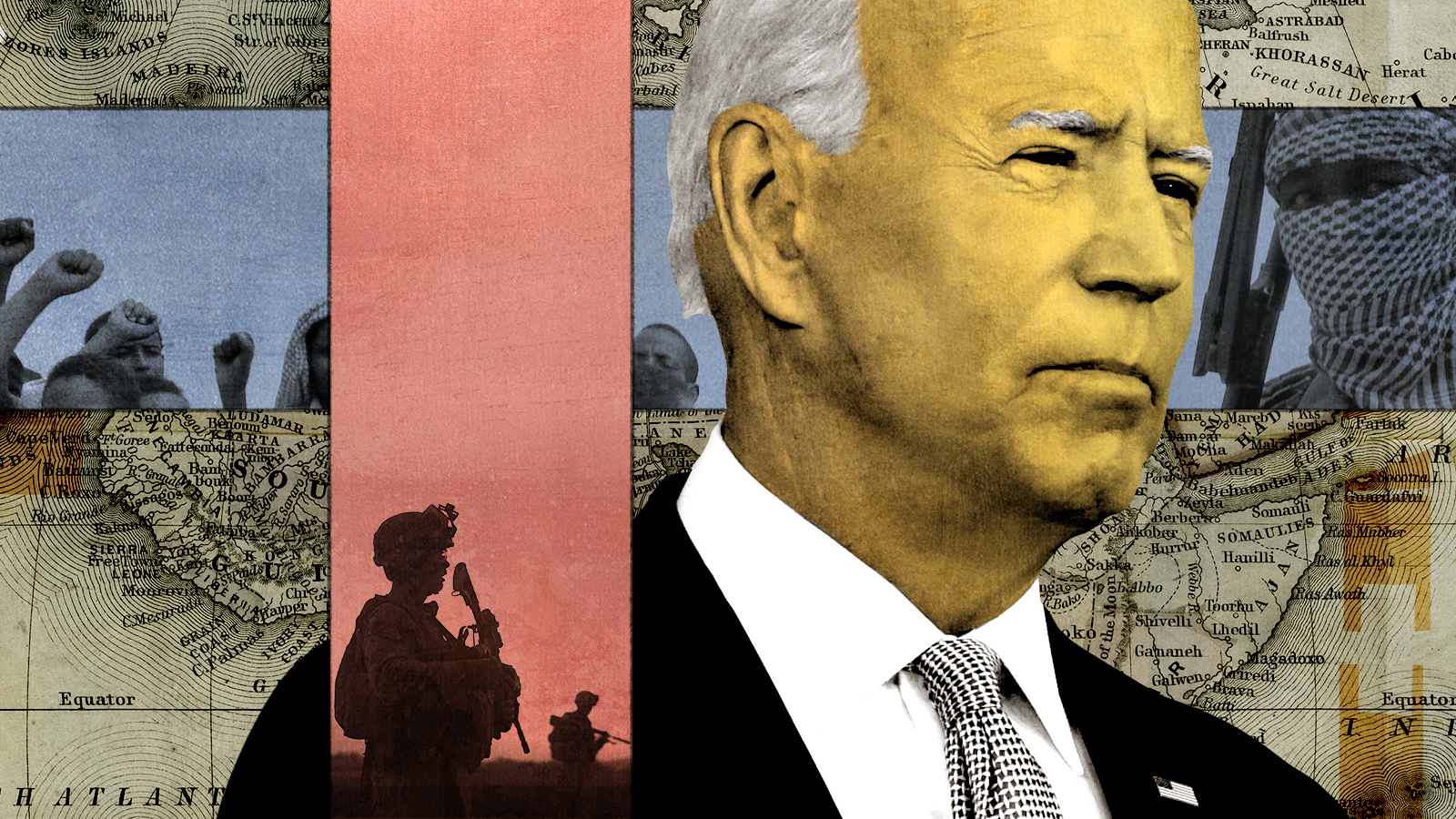
A free daily email with the biggest news stories of the day – and the best features from TheWeek.com
You are now subscribed
Your newsletter sign-up was successful
After being told by top military officials that the threat of the Al Shabab extremist group in Somalia is too great to ignore, President Biden approved the deployment of several hundred Special Operations troops to the country this week. This is a reversal of former President Donald Trump's decision during his final days in the White House to withdraw roughly 700 troops from Somalia, a move that National Security Council spokeswoman Adrienne Watson on Monday called "precipitous."
When Trump made his withdrawal order, U.S. forces that were training Somali commandos to fight Al Shabab militants were moved to neighboring Djibouti and Kenya. Since then, U.S. troops have been offering 8-week training sessions, with the Americans spending roughly three of those weeks making the risky trek to and from Somalia, The New York Times reports.
Show of strength against Al Shabab
A senior U.S. intelligence official told The Wall Street Journal in March that Al Shabab became emboldened after the troop withdrawal, and that's why U.S. military leaders pushed Biden to reverse Trump's decision. "There has been no pressure on Al Shabab at this point and they have freedom of movement," the person said. An analysis published in January by the Africa Center for Strategic Studies in Washington found that in 2021, attacks by Al Shabab rose by 17 percent compared to 2020, and it's projected that if the current surge in violence continues, that number will rise by 71 percent in 2022.
The Week
Escape your echo chamber. Get the facts behind the news, plus analysis from multiple perspectives.

Sign up for The Week's Free Newsletters
From our morning news briefing to a weekly Good News Newsletter, get the best of The Week delivered directly to your inbox.
From our morning news briefing to a weekly Good News Newsletter, get the best of The Week delivered directly to your inbox.
In February, Gen. Stephen J. Townsend, head of U.S. Africa Command, visited Somalia, and during remarks said Al Shabab "remains al Qaeda's largest, wealthiest, and most deadly affiliate, responsible for the deaths of thousands of innocents, including Americans. Disrupting Al Shabab's malign intent requires leadership from Somalis and continued support from Djibouti, Kenya, the U.S., and other members of the international community."
An unnecessary escalation of an unauthorized war
For the last 15 years, the United States has attempted to keep Al Shabab in check through military force, Sarah Harrison, a senior analyst at the nonprofit International Crisis Group, told the Times on Monday. She believes that sending more U.S. troops back to Somalia "and honing in on a small number of senior Al Shabab leadership is narrow in its aims and by definition cannot end the broader military fight absent more concerted and effective diplomatic and political efforts by the United States and others."
The Biden administration's first airstrike against Al Shabab was conducted last July. At the time, Rep. Ilhan Omar (D-Minn.) shared her concerns in a letter to Biden, writing that during the Trump administration, "airstrikes in Somalia increased dramatically with no apparent gains in either weakening Al Shabab, advancing Somali security and stability, or pursuing American interests in the region." She told him it was "critical" that the United States realize it cannot "simply drone the Al Shabab problem to death."
The Week's Bonnie Kristian, writing for Responsible Statecraft, noted that from George W. Bush to Biden, there hasn't been a legal authorization for the intervention in Somalia "as the Constitution requires. This is an executive branch project initiated without public debate and sustained almost entirely out of the public eye." She argued that Al Shabab's "focus is provincial," and while militants can "execute obscene suicide attacks on innocents in Mogadishu ... there is no reason to think U.S. airstrikes and occupation are what stands between us and an Al Shabab attack on U.S. soil."
A free daily email with the biggest news stories of the day – and the best features from TheWeek.com
Catherine Garcia has worked as a senior writer at The Week since 2014. Her writing and reporting have appeared in Entertainment Weekly, The New York Times, Wirecutter, NBC News and "The Book of Jezebel," among others. She's a graduate of the University of Redlands and the Columbia University Graduate School of Journalism.
-
 Political cartoons for February 16
Political cartoons for February 16Cartoons Monday’s political cartoons include President's Day, a valentine from the Epstein files, and more
-
 Regent Hong Kong: a tranquil haven with a prime waterfront spot
Regent Hong Kong: a tranquil haven with a prime waterfront spotThe Week Recommends The trendy hotel recently underwent an extensive two-year revamp
-
 The problem with diagnosing profound autism
The problem with diagnosing profound autismThe Explainer Experts are reconsidering the idea of autism as a spectrum, which could impact diagnoses and policy making for the condition
-
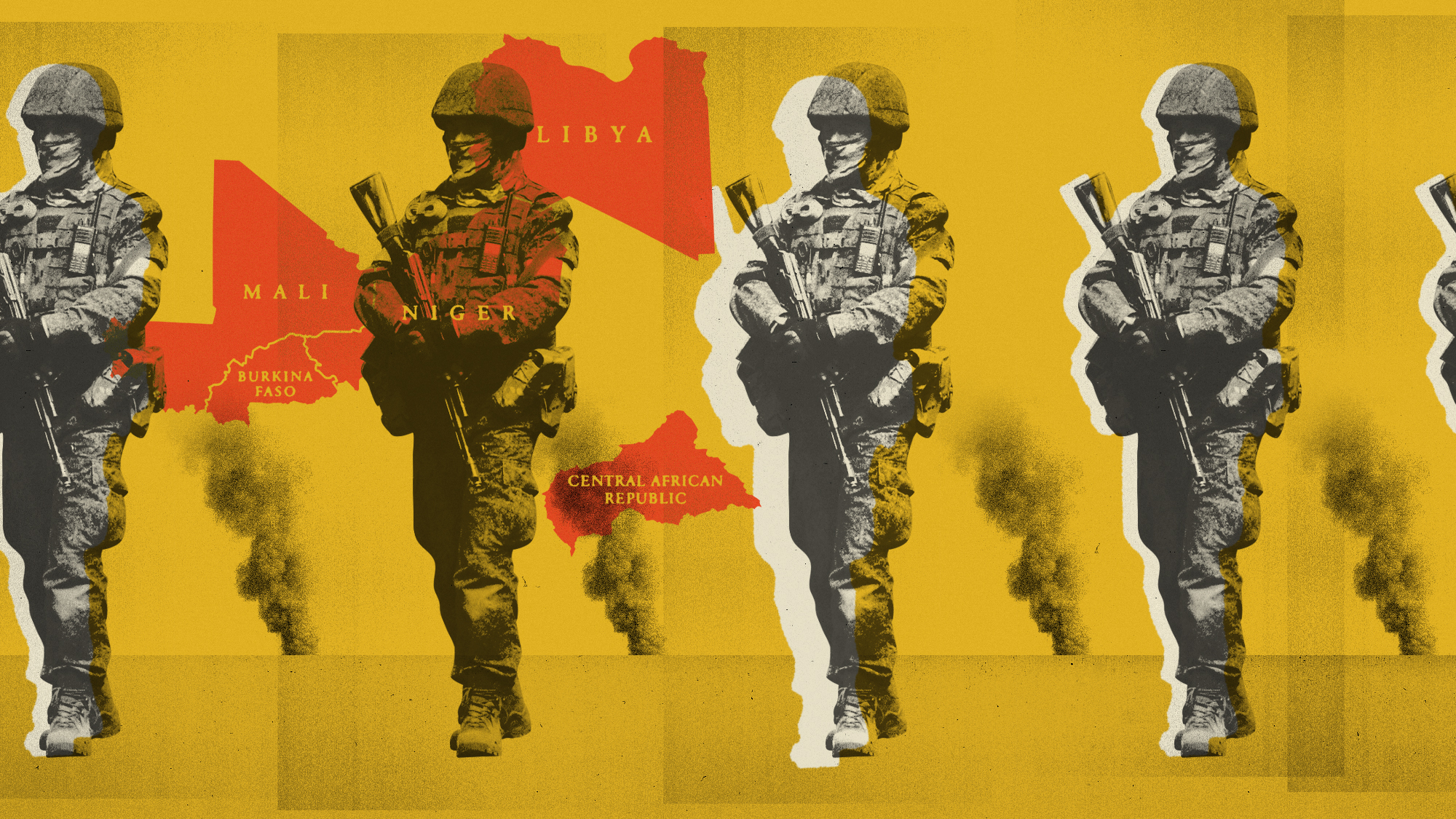 Where has the Wagner Group gone?
Where has the Wagner Group gone?Today's Big Question Kremlin takes control of Russian mercenaries after aborted mutiny and death of leadership
-
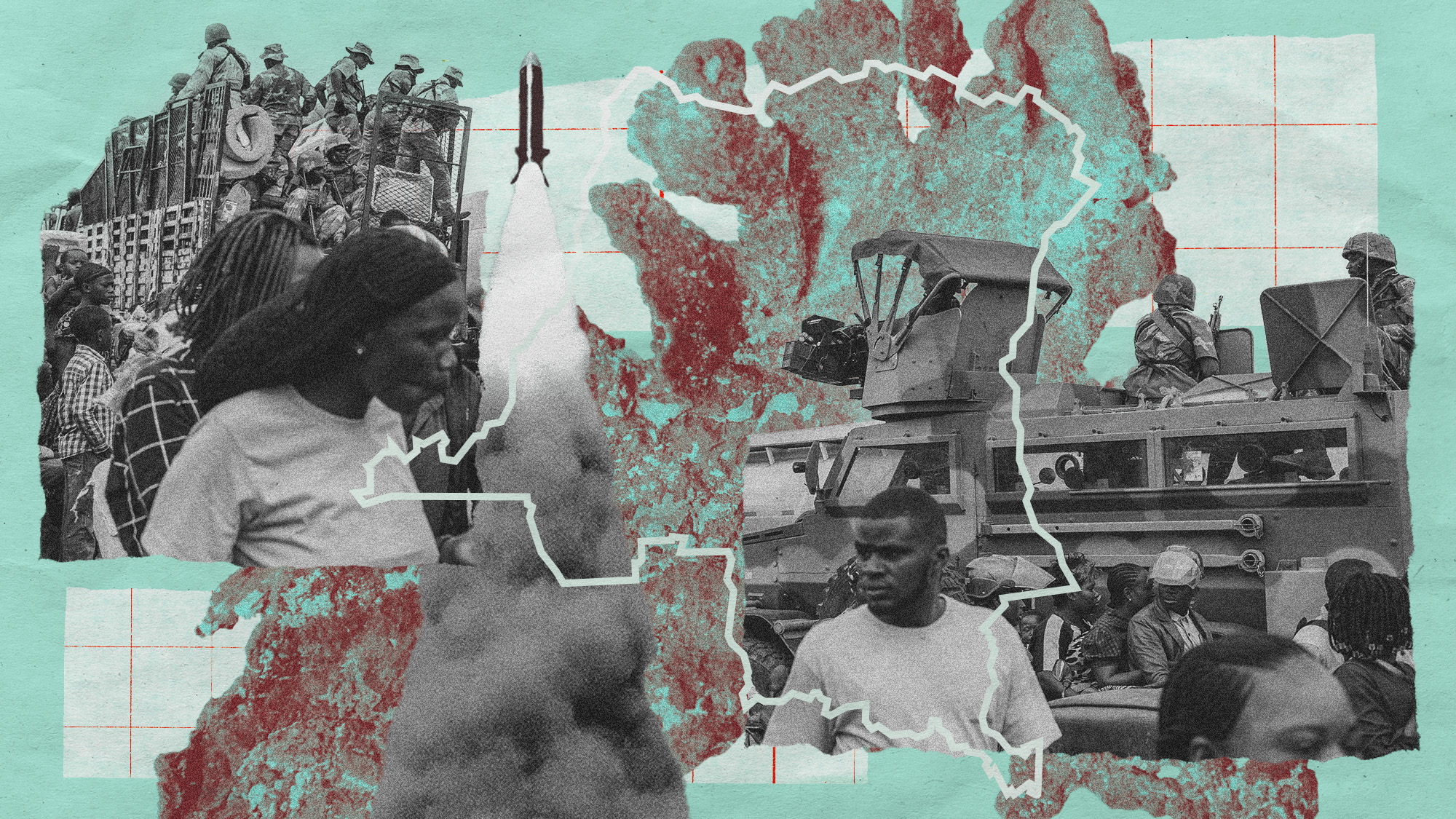 Growing turmoil in resource-rich Democratic Republic of Congo
Growing turmoil in resource-rich Democratic Republic of CongoUnder the Radar South African troops help army battle rebel groups in the world's leading cobalt producing country
-
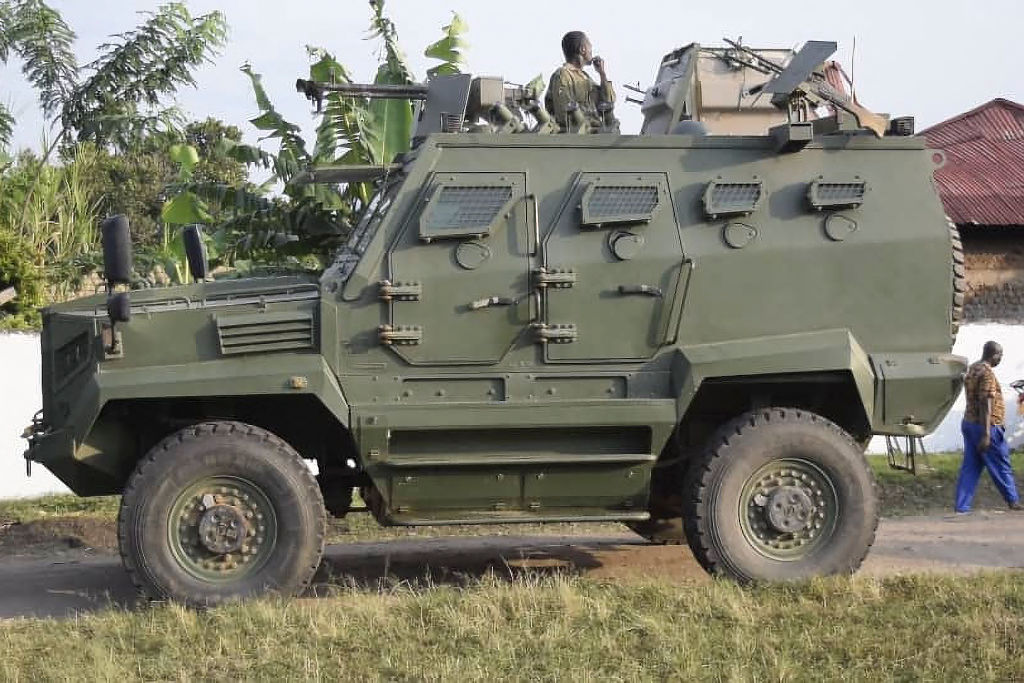 At least 40 killed in rebel attack on Ugandan school
At least 40 killed in rebel attack on Ugandan schoolSpeed Read
-
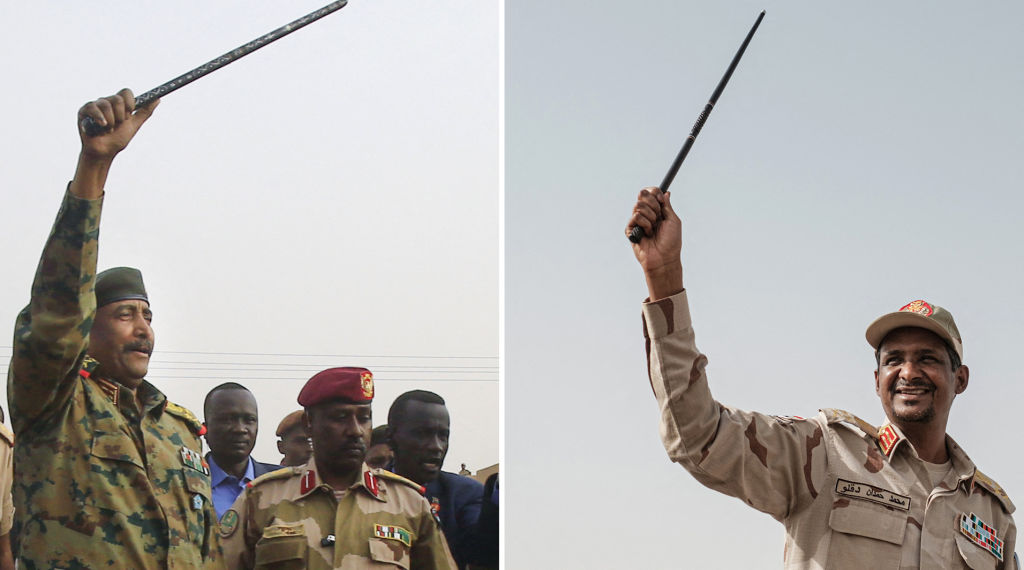 More than 185 dead in Sudan as power struggle between rival generals tips toward civil war
More than 185 dead in Sudan as power struggle between rival generals tips toward civil warSpeed Read
-
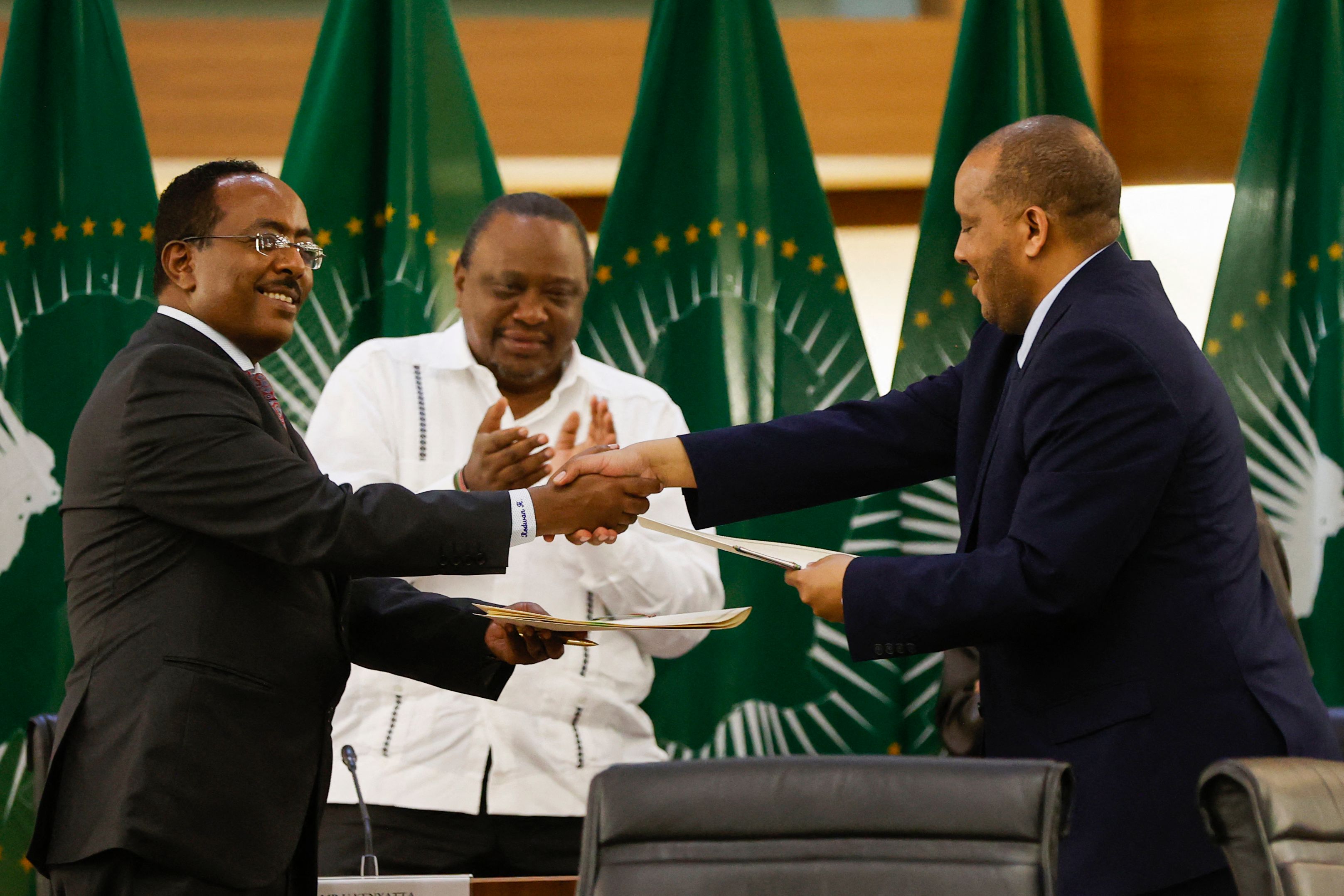 Ethiopian government, Tigray leaders sign peace treaty to end bloody civil war
Ethiopian government, Tigray leaders sign peace treaty to end bloody civil warSpeed Read
